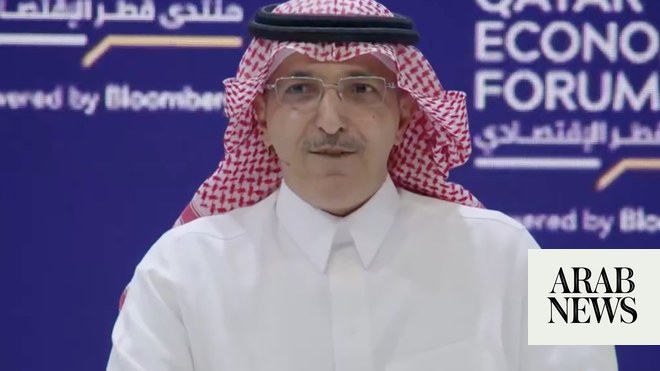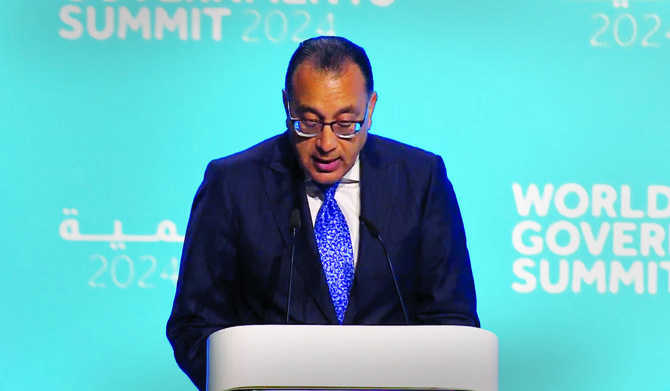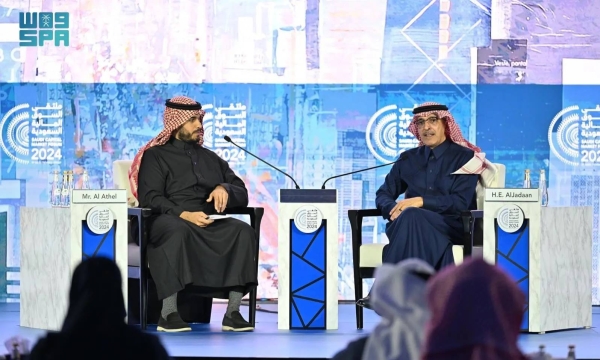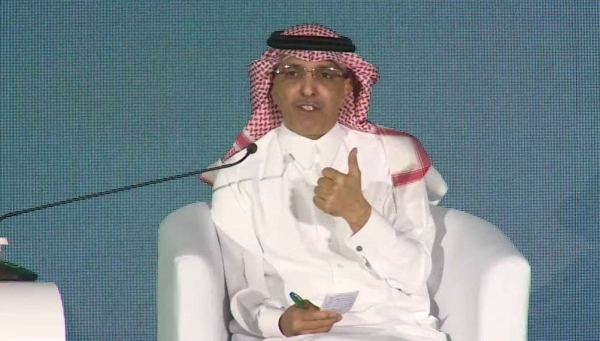
RIYADH: Shedding light on the Kingdom’s economic performance, Saudi finance minister said the country’s gross domestic product has increased by more than 15 percent since the launch of Vision 2030.
Speaking at a panel “Reshaping Middle East Economies,” on the opening day of the Qatar Economic Forum in Doha on Tuesday, Mohammed Al-Jadaan urged economic planners to optimize their strategies to curb “economic leakage” and prevent resources or fund from being wasted.
Calling for the adoption of prudent fiscal policies, the minister said spending at a time of global inflation results in increased costs of projects, which according to him, further fuels inflation and “overheat” economy.
Based on the Kingdom’s economic performance, the minister said that Saudi Arabia is in a position to “reshape the Gulf region’s” overall economy.
He said it is not just Saudi Arabia but the entire Gulf Cooperation Council is marching toward “a proper, sustainable and diversified economy that enables the private sector.”
Talking specifically about the Kingdom, the finance minister said: “(Regarding) our non-oil revenues, only in the past seven years, we moved from 10 percent to 37 percent. That is significant. Our non-oil GDP now represent (around) 50 percent of our economy.”
He noted that Vision 2030 was launched in 2016, well before the COVID-19 pandemic, wars in Ukraine and Gaza and problems like inflation and supply chain disruptions.
“All of these collective shocks that are facing the world calls us also to reprioritize, to look at what we are doing, and how can we actually optimize what we are doing, optimize our plans,” Al-Jadaan said.
Giving the reforms “more time” could ultimately be better for the Saudi economy, allowing the private sector to grow alongside the giga-projects, he said.
“If you don’t allow your economy to catch up with your projects, basically what will happen is you will import a lot more,” Al-Jadaan said.
“And you will not allow your economy, your private sector to catch up and build their factories, manufacturing facilities, service providers to actually support the projects that we are building.”
During the same panel, Muhammad Sulaiman Al-Jasser, chairman of the Islamic Development Bank Group, shed light on how the oil boom affected the Gulf Cooperation Counil region.
“When the oil boom came, the government sent us overseas all over the world to go and study and come back and participate in the development of our (respective) countries,” Al-Jasser said.
The IsDB chairman also added: “Resilience, I think is very very important, and the GCC countries seem to be together moving in that direction and now they are much greater believers in their own abilities. Resilience is probably now what distinguishes the GCC economies.”
The 4th Qatar Economic Forum aims to explore the issues driving global boardroom conversations and spotlight the Gulf’s rising prominence.












